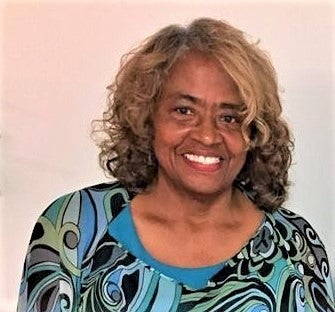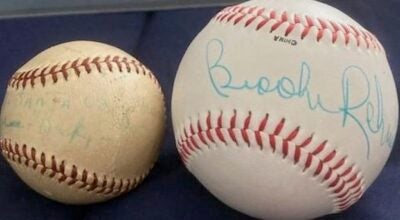Easy like Sunday morning
Published 2:38 pm Monday, August 1, 2022
|
Getting your Trinity Audio player ready...
|
On Sunday morning before Milt and I started our vacation, we stopped by the Washington Waterfront Underground Railroad Museum to do a little work. After we finished, we sat down on the bench outside to take in the beauty of the waterfront. At 11:00 a.m., several nearby church bells started to ring and one of them played a lovely hymn that wafted through the air. Those church bells took my memories to another place in time and the Sunday mornings of my childhood.
When I was growing up here so many decades ago, Sundays seemed so special. From my house on Fourth Street, I learned to identify the different church’s bells. Even today I can still hear Spring Garden Missionary Baptist Church’s bell in my mind. It seemed to be the most beautiful sounding bell. I knew it well as my family attended that church.
‘Easy like Sunday morning’ was more than a cliche back then. Sunday mornings really were easy going. My mom prepared for Sunday morning the day before. Mom, like most of our neighbors, prepared as much of Sunday’s meals as possible on Saturday. Our clothes for church were washed and ironed Saturday evening and my sister’s and I had our hair combed, pressed and curled that evening as well. Everything we needed for church had to be ready by Sunday morning. Sometimes on Sunday mornings, Mom would realize she needed something from Smith Brothers’ grocery store, Mr. Samson Cordon’s grocery store on Pierce Street or the Sunday newspaper from Jimmy’s Newsstand on Market Street. We had to go to Sunday School by 9:45 so quick trips to the stores that were open had to be done by 9:00.
Because of Blue Laws, the stores downtown were closed, and a few grocery stores did open early but closed at 11:00. Blue laws required stores, businesses and most workplaces to be closed on Sundays so that people could attend church. Called Blue laws, the name was derived from Samuel A. Peter’s General History of Connecticut in 1781 which listed Sabbath regulations and were written on blue paper.
After church, a few small stores opened and the kids would go to Matthew Gibbs’ store on Gladden Street for penny candy and cookies, Pomp Credle’s was the spot for the best peach ice cream ever that you could get on a ‘double headed’ ice cream cone, or the best snow cones I ever had from ‘Shorty’s Hi-De-Ho Sandwich Shop’ at Fourth and Pierce Streets. All the kids called Shorty’s snow cones ‘dirty reds.’ That finely crushed ice with the sweet fruit flavored syrup was everything! It was a crazy name for the sweet treat, but I loved them!
Sunday afternoon after dinner, folks sat on their porches and other people and their families would come visit them. Neighbors who made the most delicious cakes or sweet potato or rice pudding would drop off little treat bags to the older neighbors and stop a while to talk. The kids would gather in groups on their friends’ porches, and we’d try to learn the words to some of the current popular songs like ‘Yakety Yak-Don’t Talk Back’ or the ‘The Purple People Eater.’ (Yep, they really were songs!) Sometimes we’d sit around and listen to the grown folks talk about the news of the day and learned cool stuff like the words ‘In God We Trust’ being adopted as the National motto.
And while Sundays will never be the same, the memories of those easy-going Sunday mornings will always warm my heart.
Leesa Jones is a Washington native and the co-founder and co-executive director of the Washington Waterfront Underground Railroad Museum.






